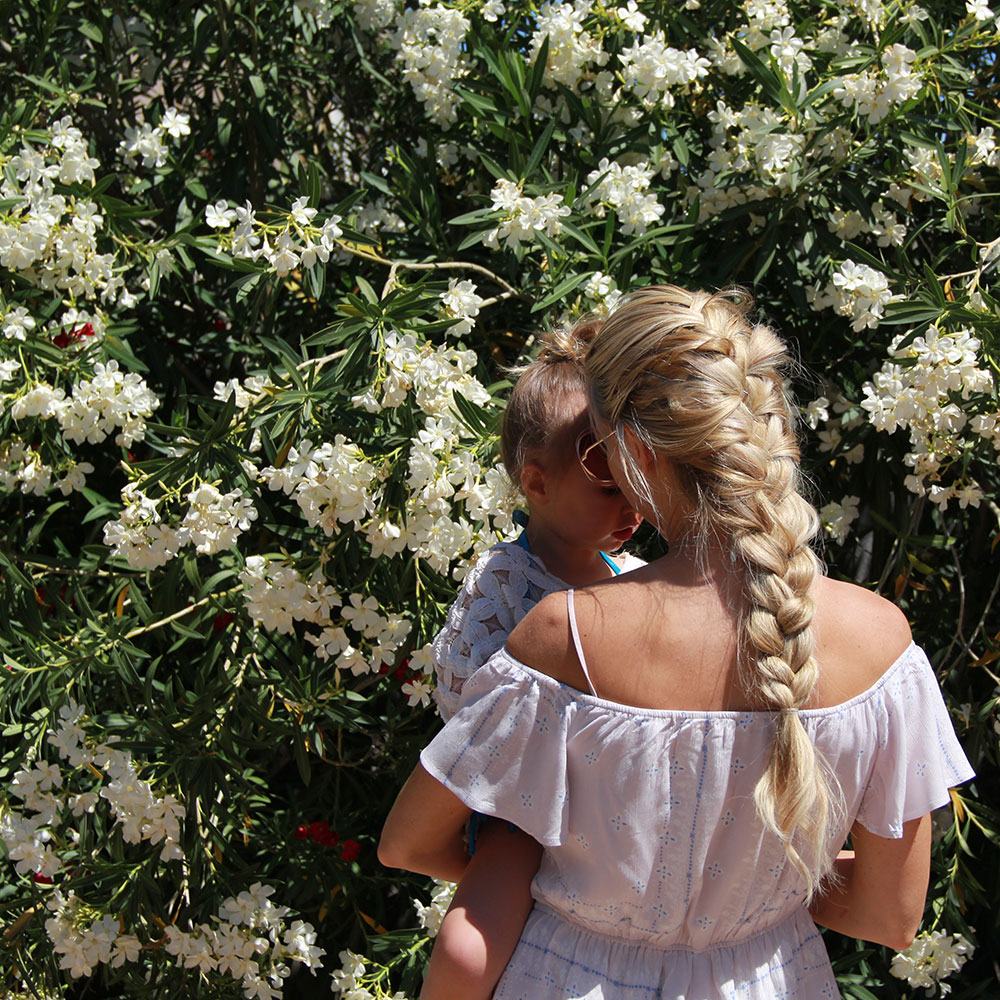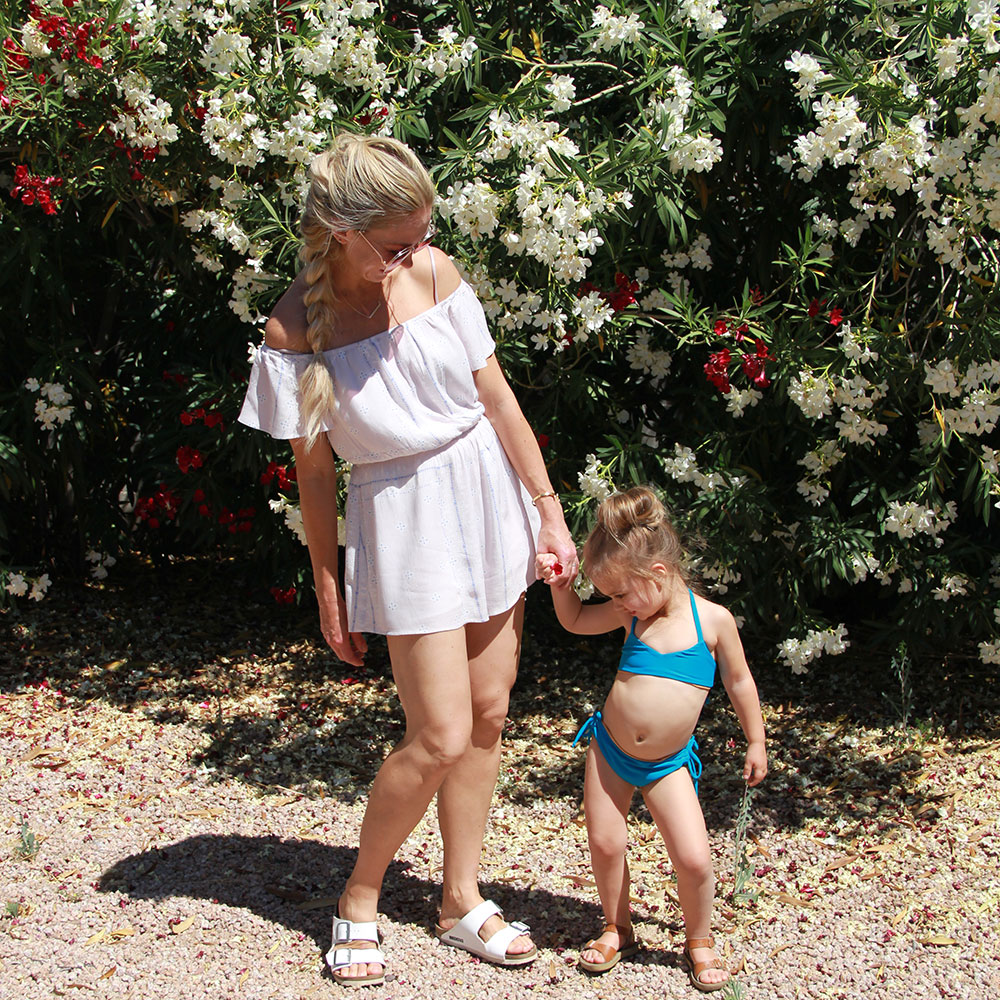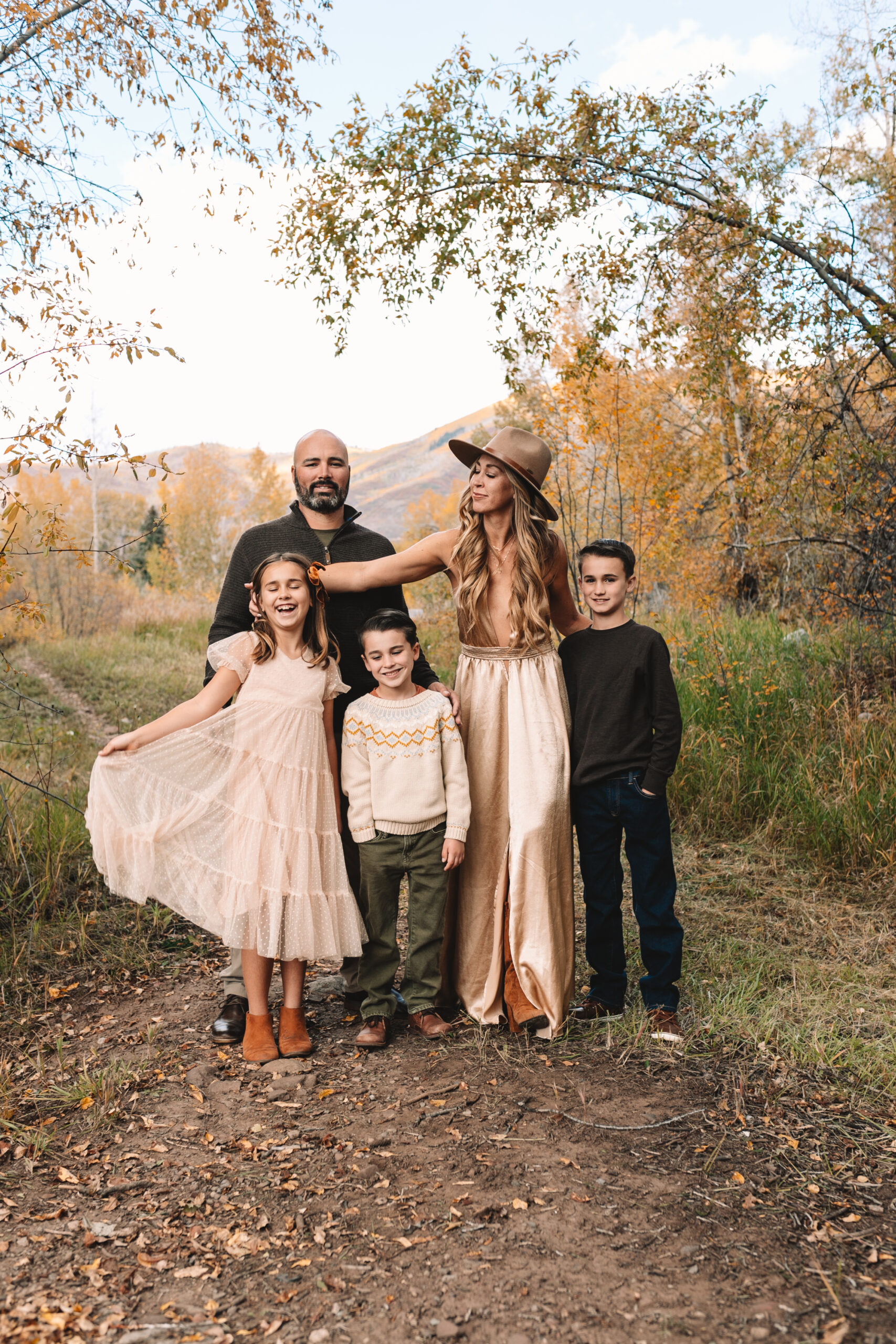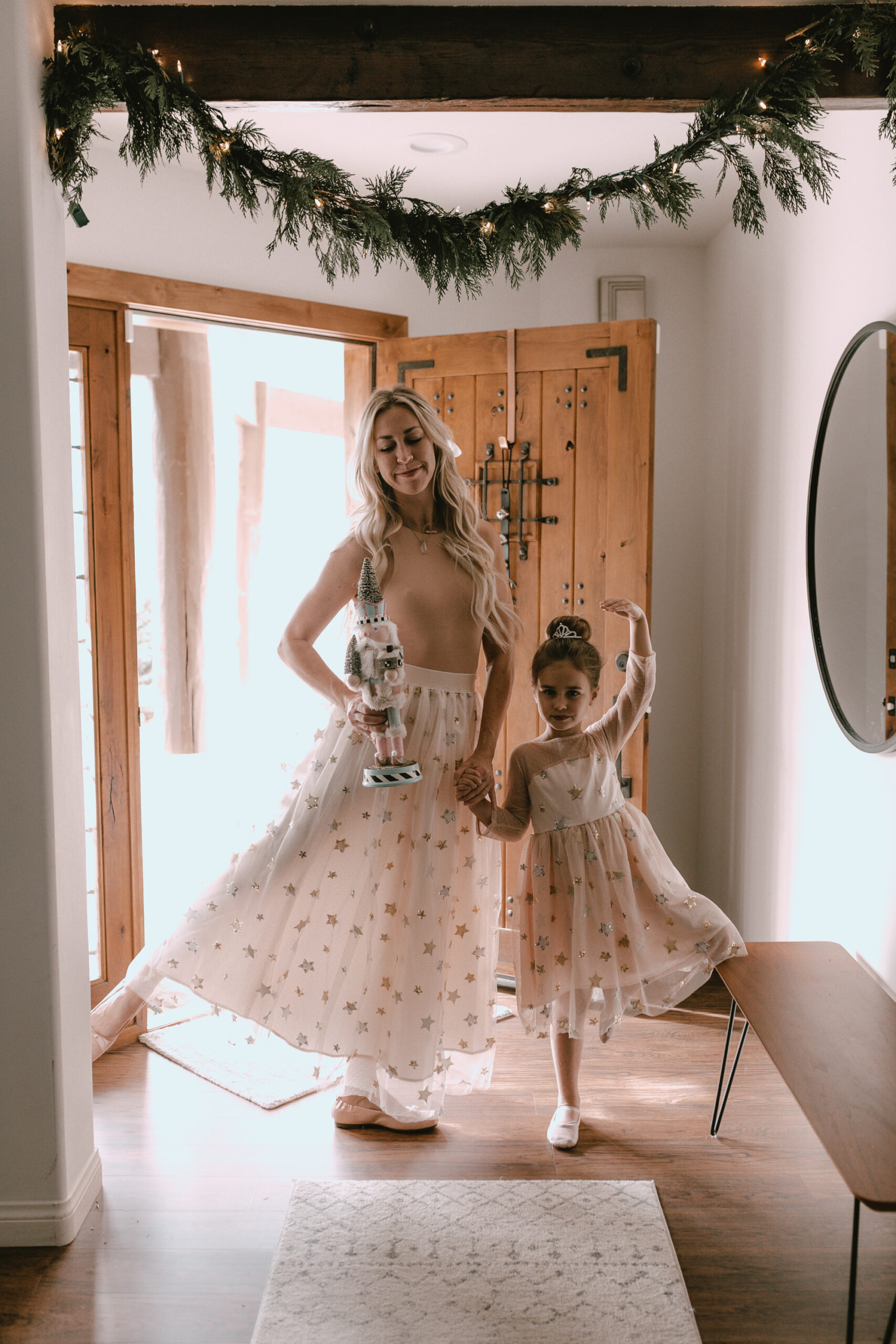postpartum depression + anxiety: a personal story

May is Mental Health Awareness Month and has also been deemed Postpartum Depression (and anxiety) Awareness Month. I just recently learned that, so I felt like now might be as good a time as any to share my story of postpartum depression.
I have had this post in my drafts for days, and in my mind for weeks before this. In fact it’s been years since I was first diagnosed with PPD. So deep breath, here it goes. This is my story.
I have always been very open and honest with my real life friends and family about my postpartum journey. But I realized the other day, I never shared it here on the blog before. To be honest, one of the main reasons I started my blog in the first place was to be able to connect with other mothers who were going through what I was (having a baby, new motherhood, etc.) and the complex feelings that go along with that monumental shift in life. It took me a couple of years after having that first baby, and then having another, to organize my intentions into a blog. I wanted to pass on the connections and support I had found through my motherhood experience in some way. I still hope I am able to do that now.
First of all, I should mention that I have a history with depression. Without diving too far into that, the jest of it is, when I was in high school I had an unhealthy boyfriend situation. It was dark time for me. But eventually, I started seeing a counselor and taking antidepressant medication. Then, I went off to college, and generally started feeling a lot better.
I also have a family history of depression, on both sides. So when I had my first baby, my parents and husband already knew they would have to keep an eye on me for signs of postpartum depression. And I knew for myself, that I had to be vigilant about seeking help, advice, and support during this new chapter of life. Right after I had him, I did spend a lot of time seeking out and going to new mommy groups and events. I even found a mommy + me group that was honestly my saving grace through those first few months.
It’s interesting because for me, it hit later, when my babe was around 8 months old. Looking back, I probably did have some signs earlier than that, but I just did my best to muddle through. Because let’s be honest, motherhood is HARD, no matter what. So I often wondered, is this just how it is for everyone? Am I just being dramatic?


my baby: then, brand new // now, six years old!
For me, my symptoms were more anxiety than depression. I didn’t realize that at the time, but looking back, that’s what it was. From the time he was first born and I had to leave him in the hospital for jaundice treatment, I worried about him. He slept in our room for his first year, and I would literally wake up in the middle of the night in a full panic thinking he had stopped breathing. I couldn’t even lay back down until I gently placed my hand on his tiny chest and physically felt it rise and fall several times. He was actually our champion sleeper from a very early age, but I could hardly sleep at all. I worried his daycare wasn’t good enough, about producing enough milk for him, about everything he ate, about his sleep schedule. I worried he was growing up without me and that I was somehow failing him as a mother by working as much as I did. I was worried about EVERYTHING. Even as I write this, I can again feel the weight on my chest that makes it hard to breathe when I was thinking and worrying about him.
By the time I finally asked for help, I had been back to work for 5 months. My babe wasn’t getting enough milk from me anymore, despite my pumping and extra pumping around the clock and in between what few feedings I could give him myself. I was devastated because my type A personality had set the goal to breastfeed for one year. I felt like a failure. My time spent away from work (for maternity leave) and then going back left me feeling unwelcome and underappreciated there. Everyday was a rat race to get him to and from daycare, get to work on time, leave on time, eat, take baths, bedtime, etc. There was absolutely zero “me time.” I just felt overwhelmed, exhausted, and like I wasn’t doing any part of life good enough. I cried pretty much every day.
I knew I needed help but felt overwhelmed about even the idea of where to turn, who to ask. I lean towards a more natural approach to life and preferred not to take drugs. But I also have had some bad experiences with therapists in the past and didn’t want to end up with someone I didn’t trust or connect with. The last thing I wanted to do was go from therapist to therapist trying to get help. I talked to my parents about it and my mom was the one who finally convinced me to talk to my obgyn about it. He put me on Zoloft, and as reluctant as I was towards drugs, at the time, I felt like I was out of options. And the drugs did help. A lot. They got me at least to the point where having the support groups and of course support from my family was enough again.
When my baby Adriano turned one year, it was literally like a fog lifted. I remember pointedly after all the guests had left his first birthday party, feeling the most peaceful sense of accomplishment. We had made it. I made it.
Of course this is not to say it was all roses and butterflies from there on out. I continued on Zoloft until we decided to start trying for #2. And as nervous as I was to stop taking it, I actually felt just fine without it by that time. Babies #2 and #3 were different, in so many ways. But of course with their own challenges. Perhaps I will save those stories for another time.
Even though I had a great support system around me then, I still felt so alone during that time. So I share this story in hopes that if anyone out there is feeling the same, just know that you are not alone. It is hard. SO hard. But you got this, mama. You can do the hard things. Let your support group lift you up and help you out. But you have to help yourself too. Allow yourself the time and space to take care of yourself.

my romper by tobi // my shoes // her bikini // her shoes

When I was in the thick of postpartum depression and anxiety, one thing I really wished I would have had was access to was a mental health professional who understood my specific motherhood-related condition. Recently here in Scottsdale, I met with Jade Bruno, a Licensed Marriage and Family Therapist (LMFT) of The Couch and Beyond. I instantly connected with her and her passion for helping families, specifically mothers and children. As we got to talking, I wanted to pick Jade’s brain about PPD, and what a mother who is feeling like I was feeling can do at that point of needing help, but feeling just SO overwhelmed. I am sharing some of our conversation here, again, in hopes that it can help someone who might be going through it too.
Paige: I felt so alone when I was in the depths of PPD. Even though I logically knew I had a good support system around me, I still felt like no one understood. How common is this condition?
Jade: According to the Centers for Disease Control, on average 15% of women who give birth each year have postpartum depression symptoms. This would mean approximately 600,000 women get PPD each year in the United States alone. With these dangerously high statistics, you would think this topic would be more widely addressed; however, mental health stigma, especially when it comes to new mothers still exists. Luckily, there are mental health providers who specialize in treating these exact symptoms and challenges that are ready to help.
P: I often wondered if I just had the “baby blues” and if what I was feeling was normal for all mothers. What are the “baby blues,” exactly?
J: After giving birth to your child your body has some major adjusting to do! Between the hormonal changes, disruption to your routine and sleep disturbances between 70-80% of mothers experience some negative feeling or mood swings. Often times “baby blues” will hit forcefully between four to fives days after the birth of the baby, although depending on how the birth of the baby went, they may be noticeably early. The most experienced symptoms associated with baby blues are weepiness or crying for no apparent reason, impatience, irritability, restlessness, anxiety and insomnia (even when the baby is sleeping.) These symptoms normally occur for a few minutes up to a few hours each day and will typically disappear within fourteen days after delivery.
P: Ok so in those early days right after baby, and definitely feeling those blues, what’s your best advice for mamas who are there right now?
J: The best way to cope with the “baby blues” is to take care of YOU. After your delivery it can seem like instantly your needs, as the mother will never matter again. All your attention, thoughts and discussions revolve around your new baby. It is important to recognize how you may feel and not ignore these signs. There are several ways that you can care for yourself if you are having the “baby blues” including maintaining a well- balanced diet (simple carbohydrates can increase mood swings), keep a journal of your thoughts and feelings, talk with a trusted friend or family member, get outside and enjoy the fresh air, and most importantly, don’t expect perfection in the first few weeks. You are adjusting to your new “job” and have to give yourself time to heal from your birth and for feeding and sleeping routines to settle in.
P: For me, my symptoms lasted well beyond the first couple of weeks. At what point should a mama who’s noticing symptoms seek help?
J: If you are noticing your symptoms persisting, or getting worse past 14 days postpartum, this could be an indication of Postpartum Depression or Anxiety. It’s so important to be open and honest about how you are feeling with your care provider at all your upcoming appointments. They work with women who experience postpartum depression and anxiety often and can help evaluate how you are doing and help develop a plan moving forward. This is also a great time to begin looking for a trained and licensed therapist who can help walk through the emotional rollercoaster with you, as well as supporting and educating your family members throughout this challenging and exciting time. Remember, these feelings are temporary and with the right treatment plan and supports in place, you will feel back to yourself again.
P: After my first baby (and honestly still today!), I have such a hard time striking a balance between my kids, my marriage, work, and maintaining friendships. How do I cope with this?
J: This juggling act is all too familiar with new moms and can be what typically leads to a sense of loss of purpose or identity. My biggest piece of advice to new moms struggling to keep up is to allow yourself permission to reach out to others for support. You’d be surprised that even the moms who may seem to have it together perfectly may be suffering on the inside, and we can learn so much from each other. Maintaining regular date nights with your partner, happy hours with girlfriends or even a day for rest and relaxation can help a new mom feel more like herself.
P: Speaking of other moms, it seems like most of my mom friends have it all together and are like, super-momming life right now. I’m such a hot mess! As someone who spends a lot of time on social media, I know better than to compare my real life with someone else’s pretty social media feed. Still, it can be hard not to sometimes!
J: “Supermom syndrome” is real and exhausting! If you know someone or are a supermom yourself, you know how difficult it can be to maintain. Trying to be a supermom can often result in physical and emotional suffering, as well as stress-related conditions. Finding a balance and prioritizing things that are truly important, maintaining your health and living in the moment are a few survival skills to help make it through the years until your kids are older and life can settle down a bit.
I love hearing that life WILL settle down a bit! Thanks so much to Jade for helping answer these questions, which are a few that she told me she gets often in her practice. Beyond new motherhood, Jade also works with mothers of toddlers, teens, and everything in between, as well as with children themselves. For more information on Jade and her services, visit www.TheCouchAndBeyond.com or call 480-622-3867.
p.s. This post is not sponsored in any way, I just truly wanted to share my personal story and to provide a professional’s point of view on this subject I am so passionate about. If I have helped even one person, then sharing my story and this information was more than worth it. I would love to hear your story too. Please share, if you feel so inclined, in the comments below!





May 12, 2017 @ 10:42 AM
This post has me in tears. My family has a history of bad depression and mental illness on both sides. I count myself lucky that I escaped the worst of the disorders, but I do have depression.
My 5th baby is 14 months old now. This past week has been so hard. I’m a stay at home mom and have felt lately that I’m in a loop of deja vu. I know deep down, that what I do matters, but I feel lately that it’s pointless. I’m hoping it passes quickly.
May 12, 2017 @ 1:22 PM
Oh Gaby, thanks so much for sharing your story. What you do matters more than you will probably ever fully realize. You are so incredibly loved in the eyes of your children. You have a lot on your plate right now. You need to reach out and ask for help. Your spouse, a neighbor, a friend, or family. Ask them to take a kid or two or all of them for a while. Or ask for help finding a mental health professional. You don’t have to wait for it to pass. You don’t have to go it alone. Do that for your family. All the love, mama.
May 16, 2017 @ 9:10 AM
Thank you SO much for sharing your journey with us! It takes a great deal of courage to be so vulnerable. Your post spoke directly to my soul as I share many similarities with my own experience. I remember feeling so isolated and alone, like I was different from every other Mom. No one ever spoke about PPD and there was little to no literature that I could find after having P. My guilt kept me from seeking help and I ended up suffering far longer than I ever needed to. It is so important for us to be brave and press publish on our storied because you just never know who might be in need of your words. Thank you sweet friend! I am so proud of you and your journey.
May 16, 2017 @ 1:57 PM
thanks so much ursula! I agree with so much of what you said. it just isn’t talked about enough and that was also part of what held me back for so long from seeking help.